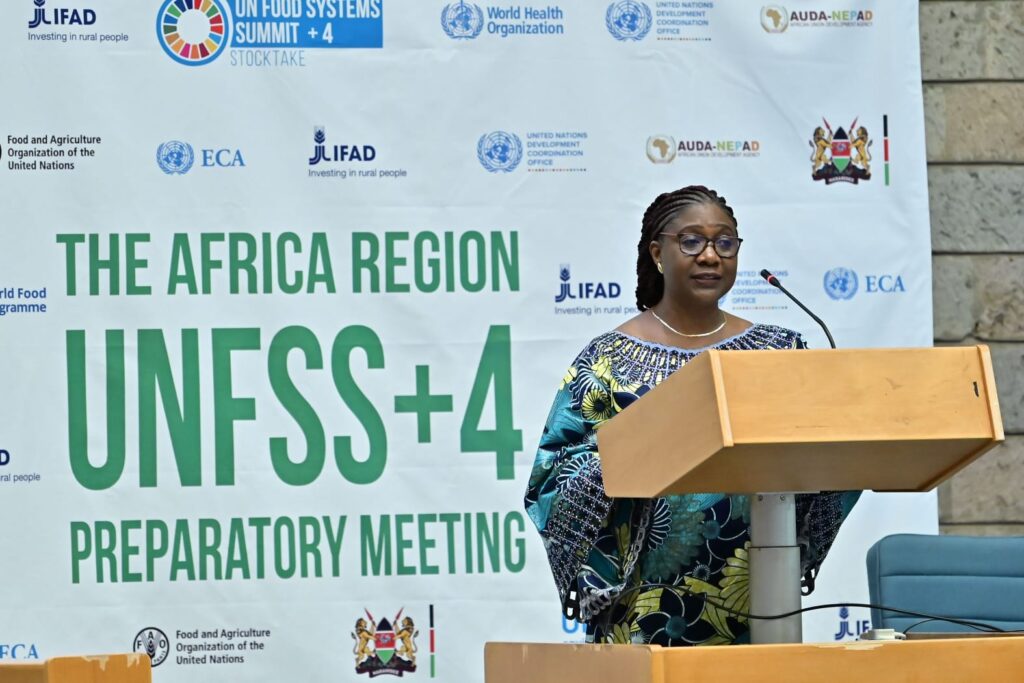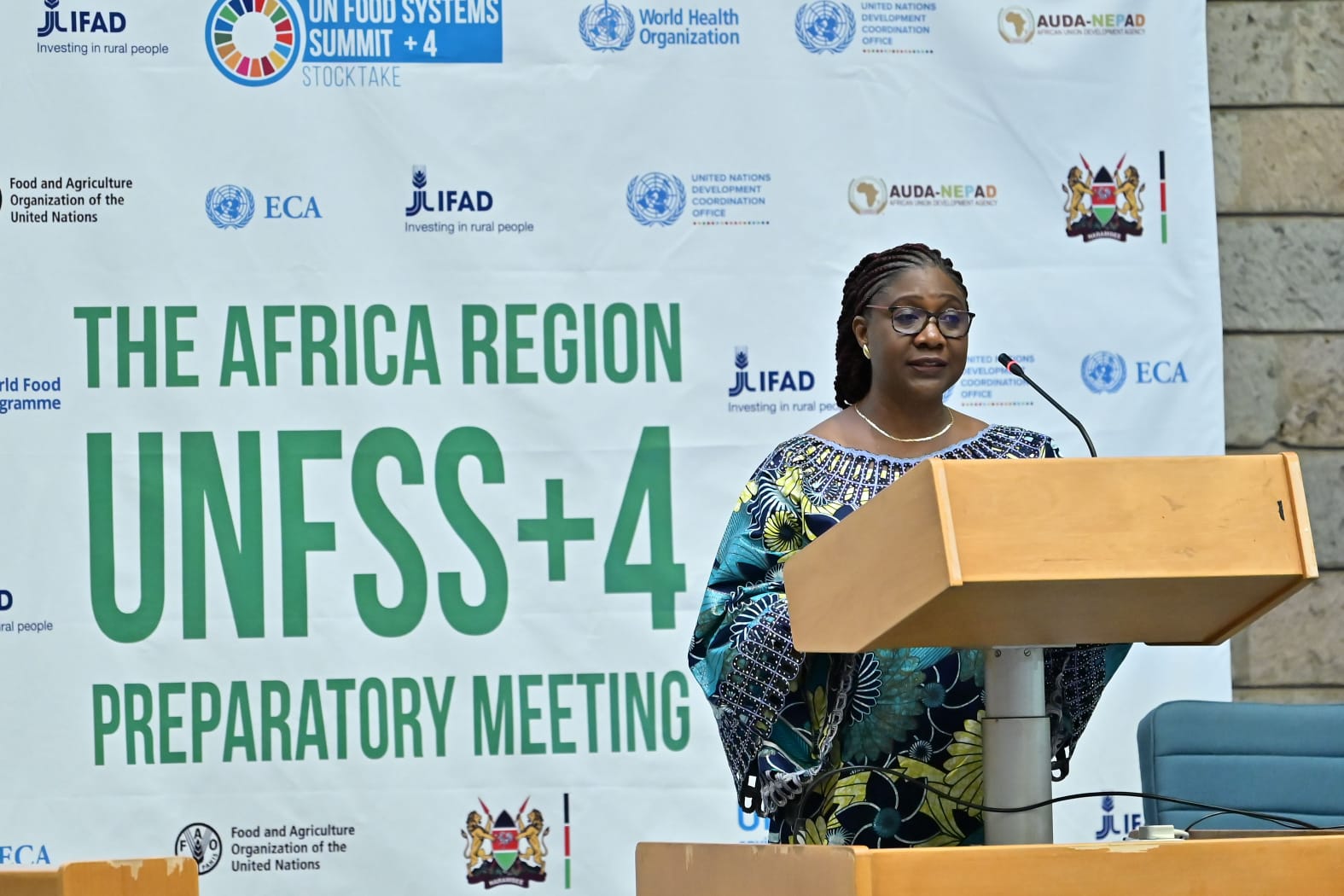
By Baboloki Semele: As Africa prepares for the upcoming United Nations Food Systems Summit +4 (UNFSS+4) in Addis Ababa from July 27–29, 2025, the continent is aligning its strategies to transform food systems sustainably. A pivotal development in this endeavor is the Kampala Declaration, adopted at the Extraordinary African Union (AU) Summit in January 2025. The Kampala Declaration introduces a comprehensive 10-year strategy (2026–2035) aimed at overhauling Africa’s agrifood systems. This strategy emphasizes climate resilience, nutrition security, and inclusive livelihoods, marking a shift from traditional agriculture-led growth to a holistic food systems approach.
Estherine Fotabong, Director of Programme Implementation and Coordination at AUDA-NEPAD, highlighted the Declaration’s alignment with the Sustainable Development Goals (SDGs) and Agenda 2063. Speaking at the Africa Regional UNFSS+4 Preparatory Meeting in Nairobi, she stated, “The Kampala Declaration on CAADP (2025) is aligning the transformation of Africa’s food systems to the SDGs and Agenda 2063 of the African Union, with renewed urgency and collective purpose, to drive transformation of Africa’s agrifood systems into engines of resilience, inclusion, sustainability, and prosperity.”
Ambitious Targets for 2035
The Declaration sets forth ambitious goals to be achieved by 2035:
-
Increase agrifood output by 45%.
-
Reduce post-harvest losses by 50%.
-
Triple intra-African trade in agricultural goods, aligning with the African Continental Free Trade Area (AfCFTA).
-
Close the gender productivity gap by 50% and empower at least 30% of women, youth, and vulnerable groups in agrifood value chains.
-
Ensure that 30% of agricultural land is under sustainable management and that 40% of households are protected from climate and economic shocks.
Investment and Governance: Pillars of Transformation
Fotabong emphasized the need for substantial investment, estimating that transforming Africa’s food systems will require approximately US$100 billion by 2035. She advocated for mobilizing climate-sensitive and inclusive financing, investing in regional value chains, and exploring innovative finance mechanisms such as diaspora bonds and green finance instruments.
Accountability remains central to the Comprehensive Africa Agriculture Development Programme (CAADP) and the broader food systems agenda. The CAADP mutual accountability framework, through the Biennial Review process, provides a valuable mechanism to track progress and identify areas for action. The Declaration calls for inclusive and transparent governance, ensuring that smallholder farmers, women, youth, and indigenous communities are central to policy design and implementation. It also proposes the establishment of a private sector-led Agrifood Systems Advisory Council to strengthen private sector leadership.
Harnessing data and digital technologies is crucial for promoting evidence-based policymaking and closing the information gap in agriculture and food systems governance.
As the continent prepares for the UNFSS+4 Stocktaking Moment in Addis Ababa, Ethiopia, in July 2025, the Kampala Declaration serves as a foundational framework. The summit will focus on accelerating the implementation of CAADP and the Kampala Declaration by aligning national agrifood systems pathways and investment priorities; scaling up success by showcasing regional innovations, from biofortified crops and regenerative agriculture to AI-assisted extension services; and fostering convergence across sectors and ecosystems, integrating blue and green economies, climate commitments, biodiversity frameworks, and Africa’s 2035 Zero Hunger ambition.
With just five years remaining until the 2030 SDG deadline, the outcomes of UNFSS+4 will be instrumental in shaping the future of global food systems.
